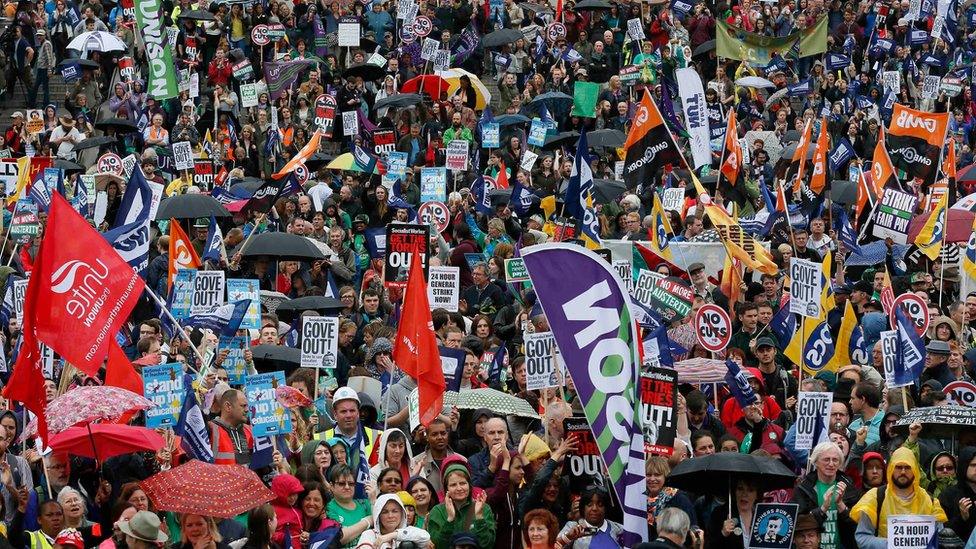Trade Union Bill: E-voting review among expected changes
- Published

A review of whether to allow electronic voting in strike ballots is expected to be part of further changes to the government's Trade Union Bill.
Ministers are also expected to delay controversial changes to unions' political funds.
The bill, which has faced fierce criticism from unions and the Labour Party, is returning before MPs after a series of defeats in the Lords.
Downing Street said it was trying to "get the balance right".
Last week the government backed down over plans to end the right of workers to pay union subscriptions by deducting them from their wages.
The e-voting review was one of the amendments, external made by the House of Lords when it defeated the government in votes on the bill last month.
As part of the government's response to that defeat, changes are also expected to reforms planned for unions' political levies, according to BBC political correspondent Carole Walker.
Ministers want to require Labour-affiliated union members to "opt in" to paying a levy to the party.
If an opt-in is introduced, Labour believes three million fewer members of the biggest unions would agree to pay into them, costing it £6m.
The government is expected to press ahead with the reform but to give unions 12 months, rather than three months, to introduce it.
Peers said the changes should apply to new members only.
David Cameron's spokeswoman said: "The bill is going through the usual parliamentary process in the House where members of Parliament have the opportunity to voice views and raise concerns and the government can look at those and respond appropriately."
The TUC has called the bill "unnecessary, anti-democratic and unfair".